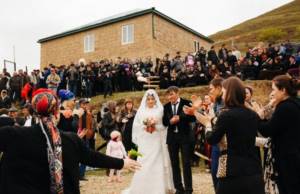Some features of religions
For example, Christianity means “anointed one”, “messiah” in Greek. It unites three directions: Orthodoxy, Catholicism and Protestantism. All of them are united by faith in the triune God, while Jesus Christ is presented as the God-man who saves the world. Religion is based on love for man, mercy for suffering people. Christian teaching claims that this religion was not created by people, but was given to human society as a ready-made, complete teaching.
The Jewish national religion, Judaism, recognizes only one God, Yahweh, and the Messiah (savior). The oldest teaching (1st millennium BC), which arose in Palestine, is based on the chosenness of the Jewish people. It rejects Jesus Christ.
In the 5th-6th centuries. BC e. in India, a religion arises, which is aimed at achieving the highest peace and bliss (nirvana) as a result of the renunciation of all desires and moral perfection (in Buddhism), etc.
One of the most widespread religions is Islam, which originated on the Arabian Peninsula (early 7th century BC).
Place 6. Henna night as a tradition of a bachelorette party before a Muslim wedding
For Turkish, Moroccan and Egyptian women, Henna Night is the second day of the bachelorette party and is held the day after the bath procedures. This custom is also common in India. For Muslims, henna symbolizes wealth, beauty, fertility, and can also protect against evil spirits. It is customary for every nation to apply wedding mehendi (henna designs) to the hands and feet of the Muslim bride in different variations: national ornaments and designs, inscriptions with the initials of the newlyweds and excerpts from prayers.
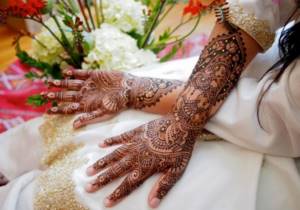
There is a similar custom in Malaysia, only the hands of both the bride and groom are painted with henna. The tips of the fingers are usually painted. This ritual is performed three days before a Muslim wedding. It's called Berinay.

The essence of religion
Islam (from Arabic - “monotheism”) is a religion that recognizes one God. It is believed that before the appearance of people on earth, it was professed by Angels. All the Prophets sent by the Almighty called to her and addressed all nations in different languages. The latest scriptures are presented in Arabic because the last Prophet was an Arab. Therefore, religious terms sound in Arabic (Islam is faith in God and his Prophets, Allah is the Arabic name of God, Muslim is a believer).
The basic rule of Islam is belief in one God, the revealed Koran, as well as in destiny, life after death (resurrection), hell for the “infidels” and prosperity in paradise for believers. Everything that happens in the life of a Muslim is created by God (good, evil, etc.).
Hajj
Hajj is the pilgrimage of a Muslim at a certain time to visit Mecca and its environs. From Arabic, this word means “desire for the glorified.” The Hajj is associated with the month of Dhu-l-Hijjah (literally “possessing the pilgrimage”), the twelfth month of the Islamic calendar. This special action, according to the Koran, is obligatory on all Muslims. The tradition dates back to the time of Adam and Eve, who met on Mount Arafat after the Almighty expelled them from Paradise. A visit to Arafat is an obligatory part of the Hajj.
According to Islamic tenets, performing Hajj is one of the best deeds a Muslim can perform. Next after it is jihad, or struggle in the path of Allah (in fact, hajj is one of its varieties). If, due to good reasons, a person is not able to perform the Hajj during his lifetime, it is permissible to send in his place another person who has previously completed the pilgrimage, paying all expenses associated with his journey. Islam prohibits non-Muslims, as well as kafirs (people who deny monotheism and do not profess any faith), from performing the Hajj.
In addition to the five pillars of Islam, there are many beautiful traditions and rituals, but all of them are somehow related to those described above. The main Holy Scripture in Islam is the Koran - the guide given by Allah to man for a righteous life, and most traditions originate from this primary source.
Subscribe to our channel in Yandex Zen
The essence of the rules
Every follower of the religion should know the set of rules in Islam. Showing reverence, respect and devotion to Allah Almighty is carried out by citizens throughout their lives. The rules of life in Islam are the basis of life values for Muslims. All their actions, actions, and thoughts are aimed at getting as close to God as possible and earning prosperity in paradise through their pious life.
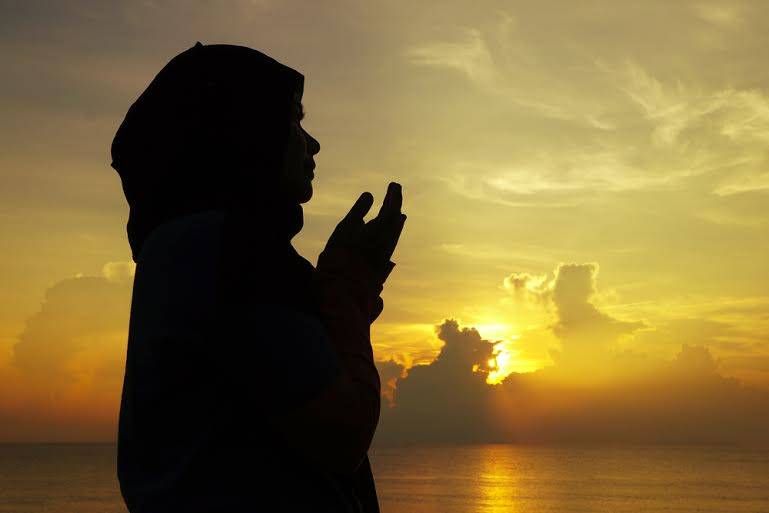
There are rules in Islam. Five of them are obligatory for all Muslims. Each of them requires inner spiritual dedication. Correct completion of each of the rules is required.
Traditions and customs of Muslims at the birth of a child
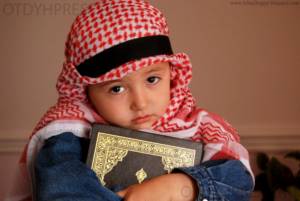
The great gift and mercy of God is the birth of a new person. The birth of a child in a family, regardless of the religion of the parents, is the most significant and joyful event in life. Happy Muslim parents accept congratulations from all relatives and friends and conduct appropriate religious rituals.
Joining the Ummah
The first word a Muslim newborn hears from his father is God. Bending over the baby, dad says two words praising Allah. The azan is spoken into the right ear, and the iqamat into the left ear. The call and command to stand up for prayer introduces the baby to the Lord and protects him from the machinations of Satan.
Baby naming
Religious scriptures do not specify the exact day (the first or the seventh) on which parents should name their child. The main thing is to make the right choice. A person’s name accompanies him throughout his life, so its meaning should carry only positive characteristics.
Followers of Islam quite often name their children after angels or prophets. One of the common male names is Muhammad. Names in which the root “abd” is combined with one of the 99 sonorous names of Allah are also popular.
For girls, the names of women from the Prophet's family are chosen - Zainab, Fatima, Khadija.
Technician
The ritual is mentioned in ancient legends: the Prophet Muhammad performed it on the newborn son of one of his followers.
Saying prayers for health and wishing the baby a happy, sweet life, the mother should smear the lips and mouth of the newborn with date mass, honey or sweet juice from another fruit. Muslims believe that this ritual strengthens the baby's muscles and prepares him for breastfeeding.
Akika
A seven-day-old newborn must be shaved. This custom is associated with purification and the beginning of the Sunnah. Hair should never be thrown away. They are stored throughout a person's life.
After the procedure, parents distribute alms to people in need. According to the rules, the number of coins for beggars should correspond to the weight of shaved hair. If the baby is born bald, the mother and father still give out alms.
Thanksgiving Ritual
On the same day as the aqika, the father is obliged to sacrifice a ram. This is a kind of thanksgiving to God for the birth of a child. If a future warrior was born in the family, it is necessary to slaughter 2 rams, and if there is a beautiful daughter, one.
Conditions do not allow city residents to carry out such a ritual. But many parents find a way out of the situation and go out of town. After carrying out the ritual of sacrifice in the forest belt, the meat of the animal is brought home and distributed to the poor.
Truncation of the foreskin in boys
An ancient and very important custom of Muslims is khitan. Male babies are circumcised after the Akika ceremony. The only delay in this procedure may be the baby’s poor health or poor health. In Turkey and some other Muslim countries, foreskin truncation is performed on mature boys, aged 7 to 10 years. The operation is entrusted to a deeply religious man with a medical education. If parents delay the procedure and do not trim the flesh until adulthood, this is considered a shame. The father and mother are accused of neglect and cruelty. After all, the ritual carries a special meaning - parents who submit to the will of Allah betray their son to Him.
Gold
Let's look at the golden rules of Islam:
- Belief in one God, recognition of the Prophet Muhammad, his mission (shahadah).
- Daily prayers at specific times: five times/day (namaz).
- Fasting for a month - Ramadan (Eid).
- Pay religious tax (tax for needy people, zakat) regularly.
- Walking to Mecca and Medina (pilgrimage, hajj).
The sixth rule of Muslims in modern society is jihad, which from a theological point of view means fighting one’s own passions.
Namaz
The second name of this canonical prayer is salat. The ritual consists of performing a rak'ah, consisting of clearly defined postures, movements and prayer formulas. Their sequence is strictly determined by the canons of Islam; violation means an automatic failure of the prayer - Allah will not hear it. The language in which the words of prayer are pronounced is certainly Arabic.
During the day, five prayers are performed - morning (two rak'ahs), midday and early evening (four rak'ahs each), evening (three rak'ahs) and night four-rak'ah prayers. At noon, as well as at dawn and sunset, as long as the sun is below the height of the spear relative to the horizon.
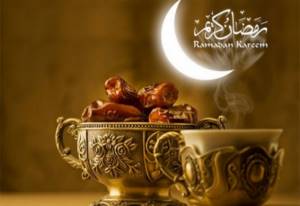
Behavior rules
There are rules of behavior and certain norms in everyday life in Islam. Start every morning with prayer, greet each other when meeting, thank Allah for food, for work, etc. There are certain rules for eating, wearing clothes, and maintaining hygiene. The Quran also provides ethical standards for behavior in society, at work and at home. By fulfilling these instructions, Muslims try to be pious and get as close as possible to God, who will grant them heavenly life after death.
Funeral prayer and burial
It is customary to bury the deceased on the day of death. After the deceased has been washed and dressed, he is placed on a tobut (special funeral stretcher). The body on the tobut is referred to the place where the funeral prayer (janaza) is performed. This prayer is different in that it is held outside the walls of the mosque, all its participants pray standing, and the body of the deceased is placed in front of the imam so that his face is turned towards Mecca. As part of the prayer, participants ask Allah to forgive the sins of the deceased and grant him His mercy. If the janazah was not performed, then from the Islamic point of view the funeral cannot be considered valid.
After performing janaza, the body of the deceased is taken to the cemetery on tobut, where the funeral takes place (daphne). In Islam, graves are used that differ from those accepted in Christianity and Judaism - in Muslim graves special niches are made, called lahad. The body of the deceased is immersed in the grave under the reading of verses (Sura Al-Mulk is most often used) and placed in the lahad so that the head looks towards Mecca, after which the lahad is covered with bricks or boards. Islam disapproves of tombstones, so grave monuments are designed extremely modestly; as a rule, only the name of the deceased, his years of life and a surah are indicated on them. All grave monuments must face Mecca. It is noteworthy that women are usually not allowed to attend funerals. The Koran also prohibits burying Muslims in non-Muslim cemeteries, and representatives of other religions in Muslim cemeteries.
Dress rules
Rules in Islam establish compliance with clothing requirements for both men and women. Representatives of the fairer sex should not wear men's clothing. However, guys are not allowed to wear women's clothing. Images of animals on clothes of both sexes are also excluded.
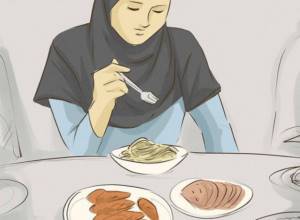
The conditions for the manufacture of things are stipulated: only permitted material is allowed. For men, clothing should be modest, made from simple fabrics, without gold trim. Her beauty is expressed by its simplicity and restraint. Silk trim on sleeves, cuffs or collar is allowed. Gold jewelry, cufflinks, rings or chains are also not permitted.
Both men's and women's clothing highlight human qualities first and foremost. It should not resemble the outfits of “infidels.” Wearing clothes is not a material requirement for it. This is gratitude to the Almighty God for the fact that a Muslim recognizes himself as his slave.
Remembrance and condolences
Condolences (tazia) to the family and loved ones of the deceased are also regulated. They should be expressed within three days after death, and this should be done only once. If friends, neighbors or close family of the deceased were on the road during the funeral, then they are allowed to express condolences with a delay. Mourning for more than three days is also considered impermissible. The exception to this rule is a woman mourning for her husband - she should mourn “four months and ten days.”
Condolences should be expressed in the home of the deceased or in a mosque. It is recommended to use the formula: “May Allah Almighty show you a blessing, elevate you in rank and allow you to endure the loss with fortitude.” The Koran does not object to expressing condolences to people of other faiths and their families, but in this case the formula is different. It is customary to commemorate the dead on the third, seventh and fortieth day after death. The Koran considers it a sin to express one’s grief too emotionally - quiet crying is acceptable, but not screams and lamentations.
Rules for women
What are the rules for women in Islam? An important feature of the religion of Islam is modesty. Believers are humble, patient and courageous. Remaining in the shadows, they lead their righteous lifestyle. Ready for compassion and generosity.
Rules in Islam call on a woman to be modest, chaste, and not to show off herself. Women's clothing should hide the sexual attractiveness of its owner from prying eyes. Such women are forced to wear a hijab. It is believed that this shows the nobility and femininity of Muslim women.
The hijab conveys a specific message of a woman's submission to the divine will in all aspects of her life. She wants to be understood and appreciated for her beautiful deeds, kindness and modesty, and lack of desire for luxury. Clothes should be loose and not transparent. At the same time, the choice of style, color scheme and taste preferences is not limited. The girl's behavior should also be modest.
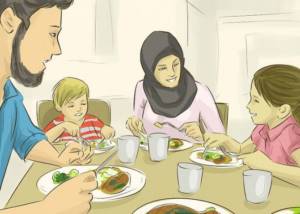
The integrity of a Muslim woman, wearing modest clothing that symbolizes femininity and conceals sexuality, commands respect from men. A woman has no right to demand from her husband more than she needs to live. This also shows modesty. She must obey her man always and in everything. Preserving the honor of her husband both at home and abroad is also the responsibility of a Muslim woman. Do not look out of the windows of the house unnecessarily, do not talk to your neighbors in vain. A woman should try to do everything so that her husband is pleased with her.
In addition to all of the above, Muslim women must constantly pray, maintain order in the house, etc. The husband and obligations to him should always come first. The wife should always be dressed up and attractive to her husband, in clean clothes, and in a good mood. Rejoice at his return. It is unacceptable to contradict or raise your voice at your husband. If he is wrong, then guide him to the right path calmly, with the help of the power of persuasion, calling on Allah. Treat children with kindness and patience, taking pity on them, and do only good to everyone.
Funeral
Although funeral rites in different Muslim countries differ from each other, there are basic rules that are followed almost everywhere. Feeling the approach of death, a Muslim must say the shahada (“There is no god but Allah, Muhammad is the messenger of Allah”). If he cannot do it himself, then someone must whisper the shahada in his ear. Shiites must read or listen to Surah 36 of the Qur'an, Ya Sin. Before death occurs, a Muslim is turned to face the qibla (towards Mecca), then a ritual ablution of the deceased is performed, which is usually performed by a specially hired person. After washing, the body is dressed in clean clothes or in special burial clothes, consisting of pecolage blankets. The body of a martyr, a “martyr of faith,” is not given, they bury such a peak in the clothes that were worn at the time of death, and a prayer is not read over the deceased.
Burial should be by the odd male member. The closest relatives place the body in the grave so that the face of the deceased is turned towards Mecca. The grave is made as spacious as possible, usually with a niche in the side wall or a depression at the bottom so that the deceased can sit down when the angels of death Munkar and Nakir appear. For this purpose, funeral vestments are also loosened. All these ceremonies are accompanied by the reading of surahs of the Koran. Religious authorities prohibit marking the grave in any way, although gravestones bearing the name of the deceased, dates of birth and death, and dates from the Koran are common. The deceased is commemorated on the third, seventh and fortieth days.
Calendar, holidays and special days
The starting point of the Muslim chronology is the Hijra - the migration of Muhammad and his supporters from Mecca to Medina in 622, but not the date of their arrival in the city, but the first day of the first month of the same year, which when translated into the European calendar corresponds to July 16, 622.
The Hijri calendar is based on the lunar calendar with a year length of 354 days.
The year is divided into 12 months: Muharram, Safar, Rabil-Awwal (Rabbi I), Rabi-l-Akhir (Rabbi II), Jumada al-Awwal (Jumada I), Jumada al-Akhir (Jumada II), Rajab, Sha'ban , Ramadan, Shawwal, Dhu-l-Qada, Dhu-l-Hijjah.
The lunar month lasts from the appearance of one new month to the next, in odd months there are 30 days, in even months - 29.
In leap lunar years, when the number of days increases from 354 to 355, an additional day is included in the last month of the year. In Iran, the Hijri era is calculated on the basis of the solar year with constant correspondence of dates.
The main Muslim holidays are Eid al-Adha and Eid al-Fitr. Eid al-Adha - the festival of sacrifice - begins on the 10th of the month of Dhu-l-Hijjah and lasts 3-4 days. Eid al-Adha takes place on the day of completion of the pilgrimage to Mecca, when pilgrims perform the rite of sacrifice in the Mina Valley in memory of the sacrifice of Ibrahim.
It is believed that not only pilgrims, but also every free Muslim who has the means to buy a sacrificial animal must make a sacrifice on this day (one person - one sheep). The animal must be of a certain age and have no flaws. Typically, a third of the meat goes to the holiday meal, and the rest is distributed to the poor.
Eid al-Fitr - the holiday of breaking the fast in honor of the end of fasting in the month of Ramadan - begins on the 1st of the month of Shawwal and lasts 3-4 days. On the first day of the holiday, as well as on the first day of Eid al-Adha, a special festive common prayer is performed. The rituals of Eid al-Fitr include a festive meal, giving alms to the poor, and it is also customary to visit friends and give gifts.
Traditionally, it is considered necessary to visit the graves of ancestors on these days. People spend a lot of time in cemeteries, often staying there overnight in special tents. They distribute food to the poor, decorate graves, read verses from the Koran or hire a person to read.
The night of the 27th day of the month of Ramadan, when, according to Muslim tradition, the first revelation was sent down to Muhammad, is celebrated by believers as Lai-pat al-qadr (Night of Predestination). It is, as the Koran says, “better than a thousand months.” It is customary to spend Laylat al-Qadr in the mosque, reading the Koran and offering prayers and requests to Allah and the angels.
But in many Muslim countries, on the 27th of the month of Rajab, the holiday of Miraj is celebrated - the night ascension of the Prophet Muhammad. According to tradition, one day, when Muhammad was sleeping near the Kaaba, the angel Gabriel appeared to him with the winged mount Burak (brilliant, lightning-fast), on which the prophet first went north and visited Hebron and Bethlehem, and then arrived in Jerusalem on Mount Moriah. On the night of the 27th Rajab, Muslims are required to read the Koray, pray and retell to each other the tradition of the miraculous ascension of the prophet, and on the day of the 27th Rajab, fast, which is ritually equivalent to 60 months of fasting or 100 nights of fasting and 100 nights of prayer.
Maulid - the birthday of the Prophet Muhammad - is celebrated on the 12th of Rabi al-Awwal. This holiday, which is not mentioned either in the Koran or in the Sunnah, was not recognized for a long time by many Muslim theologians, who declared Mawlid an “innovation” (bida). However, over time, the tendency to glorify Muhammad prevailed and, despite harsh criticism, the holiday was established as an “approved innovation” (bida hasana).
The first night from Thursday to Friday of the month of Rajab is called Ragaib (dreams, desires). It is believed that on this night a large number of angels descended on the Prophet Muhammad, and Allah showed great mercy to his messenger. On this night special “prayers of the gifts” are read.
Friday (ju-ma) is also considered a holiday, when healthy and free adult Muslims must gather in the mosque to conduct midday Friday prayers and listen to the sermon. Tradition says that the Day of Judgment will fall on a Friday, that Muhammad and his son-in-law Ali were born on a Friday, and that the “light of Islam” began to spread on Friday. In many Muslim countries, Friday is an official day off.
Muslim shrines
The main holy place of Islam is the Meccan Kaaba, located in the center of the main mosque of Mecca (Masjid al-Haram). According to Muslim legends, the first tent over the “black stone” was erected by Adam, and the Kaaba itself was erected by his son Shis. During the flood, the Kaaba was lifted into the air, then it collapsed, and when Ibrahim settled his son Ismail in Mecca, Allah ordered the prophet to restore the foundation of the Kaaba.
The holy cities also include Medina, where the first mosque appeared, and Jerusalem, where the Masjid al-Aqsa mosque (the Outermost Mosque), one of the most important shrines of Islam, is located. It is believed that Masjid al-Aqsa was built on the spot where, according to the epic legend, Muhammad was transported during a night journey with Jibril.
One of the main shrines of Shiite Muslims is the city of Karbala in Iraq, located 102 km from Baghdad. It houses the tomb of the third Shiite imam Husayn, his brother Abbas and 70 of their devotees, who died here in 680 in an unequal battle with the Umayyad army. The city of Mashhad in northeastern Iran is also revered by Shiites all over the world, where the tomb of the eighth Shiite imam Ali ibn Mussa ar-Rida, who died in 818, is located.
Sexual relations
An important task in the matter of sexual relations in Islam is the preservation of chastity of both sexes. Rules in Islam prescribe to “take care of your limbs and dull your gaze” for both Muslim women and believing men. If a man cannot marry due to financial insolvency, then he must abstain from sexual relations. Fasting and prayers help relieve tension in this situation.
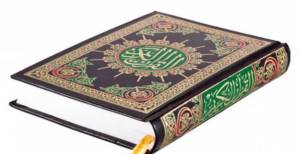
The most important requirement for marriage is the virginity of the future bride. This does not mean that you should not marry women who have been previously married. The very concept of “virginity” has a moral meaning. A woman's honor and dignity are protected by the Koran. The rules require treating women with respect. Sexual relationships are part of family life. And only a legal husband has the right to have intimate relations with his wife. A woman has the same right in relation to her husband. If the marriage is polygamous, then all wives have equal rights to their husband.
Principles for regulating relationships
The rules of religion in Islam establish the principles for regulating relationships between the sexes and control the sexual behavior of all believers:
- It is forbidden for men and women to communicate freely for fun or to enjoy communication in a group of different sexes. To limit contact between the sexes, special women's and men's sections have been established in schools, colleges, hospitals and public transport.
- People who can theoretically get married are allowed to meet in public if there is a professional or educational need for work matters. If a man has the intention of getting married, then he can communicate with a woman.
- If communication occurs, then both the woman and the man must maintain decency in everything (in looks, speech, behavior).
- If a guy and a girl are not related by blood, then they cannot be together in the same room.
- Muslim women should show off their sexy body shapes behind their clothes. A woman should only be attractive to her husband.
The wedding night
The first wedding night in Islam, the rules of which we will consider further, is a special moment in the life of the newlyweds. Young people in beautiful clothes, perfumed with incense. The groom gives his young wife a gift, treats her with sweets and has a heart-to-heart talk. Then you both need to perform 2 rak'ahs of prayer and ask Allah for a happy life, full of abundance and prosperity. At the same time, the young people are a little distracted and calm down under the influence of prayer (it has a powerful effect). Then the man must spend delicately and tenderly all aspects of the first wedding night, since the future of their relationship will depend on it. If the bride gets scared and has an aversion to intimacy, this will lead to a deterioration in their life together. After all, this is the first time she sees a man so close to her.

The girl must undress herself. In this case, the lighting should be dim. At this moment, long-term caresses and love games are important. After this, the bride will calm down and relax, she will feel excited and desire. Then the man can get closer together and carry out the act of defloration. With a gentle and delicate attitude, defloration is painless. A rude, persistent attitude can cause the development of vaginismus - spasm of the genital organs. And normal sexual intercourse is impossible.
In the modern world, where there are no remnants of the past, the result of first sexual intercourse is not flaunted, where the presence of blood stains on the sheet is obligatory. This confirms the bride's innocence. Indeed, according to the law of the Koran, marriage between a man and a woman is a sacred sacrament. Therefore, everything that happens between two people remains a secret.
Divorce in Islam: rules
For Muslims, strong bonds of marriage come first. But there are situations that can lead to divorce. First, the spouses are given time for reconciliation. The most compelling reasons for divorce are renunciation of Islam and immoral and contrary to Islam behavior of the spouse. If the period of reconciliation does not produce positive results, then divorce is inevitable.
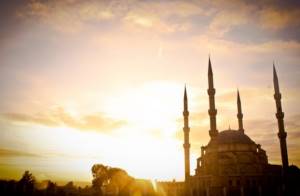
During the period of waiting for divorce, intimate intimacy between spouses is not provided. According to old customs, a married couple was considered divorced after the word “talaq” (Arabic for divorce) was pronounced three times. Children stay with their mother: boys up to 7-8 years old, and girls up to 13-15 years old. At the same time, the father is obliged to support them until they reach adulthood.
Place 10. The tradition of two big weddings among Dagestan Muslims
In the Dagestan Republic there is an interesting custom: to celebrate two celebrations in the house of the parents of the bride and groom. For Dagestanis, it is very important to show hospitality, so they rarely hold a wedding in a restaurant; they prefer to invite numerous relatives to their home. There are rarely less than a hundred guests at the holiday, and sometimes the number reaches 500 people. In principle, it is not customary for Muslims to celebrate marriages in a narrow circle.
